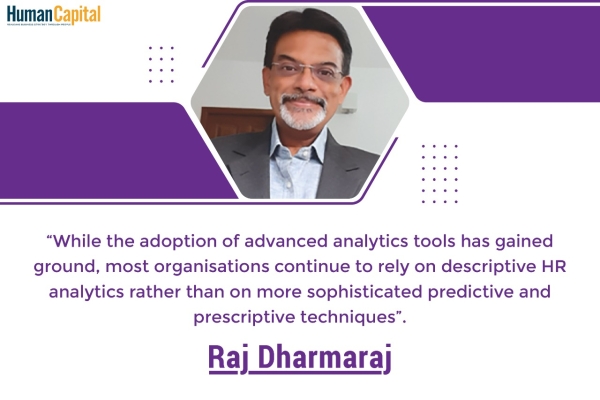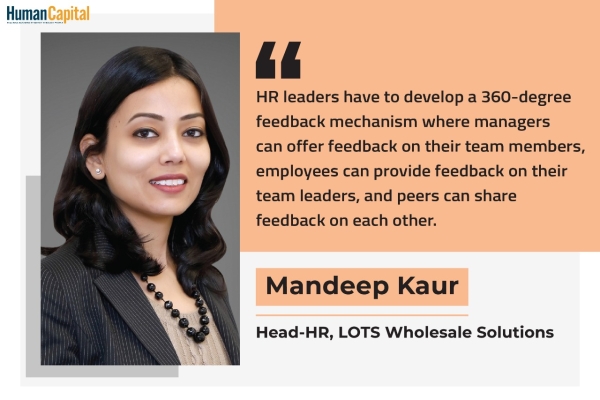Growth in cloud-based, mobile-first technology is altering the way the new-age workforce is operating. By 2020, the average workforce will consist of nearly 50% tech-savvy millennials that will be producing greater volumes of work while being on the move. It is no secret by now that the world is in the midst of great changes, and, many of them are driven by coming of age millennials.
Technology has predominantly been an enabler in optimizing and automating mundane and recurring back-end processes that have affected organisational efficiencies as a whole. This is something that is finally taking a huge turn. Adoption of newer technologies such as cloud-based solutions is now beginning to be more employee oriented. Employee satisfaction has found a new meaning thanks to new-age office-team collaboration tools, productivity tools etc. PWC’s Human Resources Technology Survey, 2017, suggests that management now sees up to 8 weeks of enhanced productivity amongst employees apart from driving a positive workplace experience.
Employee satisfaction and productivity has become the central focus for any well-oiled, performance-oriented organisation, and, even more for their HR functions. Automation in HR not only allows the HR managers to take faster and better decisions using key insights, it simply reduces or eliminates the required paperwork to be handled by employees to a large extent. A win-win for both HR managers and employees! Although most of the core HR functions like Recruitment and Payroll have seen automation, a function that still remains the least automated is management of Employee claims and allowances. In this day and age of digital wallets and mobile payments, employees are still handed out meal vouchers to be used within a time limit; employees still have to produce meal and medical bills and file them manually every month to claim reimbursements. Not to mention the tremendous tax saving opportunities they have been missing out all these years. Besides this, HRs have to take up the daunting task of distributing these benefits that are given out in different formats. In the wake of technological disruptions, this seems primitive and archaic.
The cloud-based solutions of the day provide a unique integration of a prepaid card interlinked with a powerful dashboard through which employees can manage multiple flexi-benefit wallets through a single card and manage expenses and claims right from their mobile app. They can easily switch from one wallet (food) to another (medical) on the basis of their spend requirement. They can track card balances and spends in real‑time from the app as well. Employees can use the cards anywhere - at both POS and Online merchants in India. If a wallet is not in use or if an employee loses his/her card, it can be deactivated from the app. For ease of recording expenses, employees can simply take a photo or auto scan medical and mobile bills via the app.
HRs have a fully loaded control panel that can push benefits through corporate payroll system directly (if required) through simple API integration or a single click disbursement of benefits directly to employee cards. HRs can decide the merchant meals and medical benefits that can be availed using MCC code configurations. They can track all transactions from their passbook summary and filter and export data as per the parameters they need.
With the usage of such expense management solutions, day-to day lives become easy for employees and increased productivity and efficiency is evident. Both employees and employers have control over expenses and transparency throughout the process. In short, taking the initiative to invest in flexi-benefit automation is something that can drastically improve employee experience, especially that of today’s millennials. With a wide range of features and functions, the expense solutions of the modern day can help you take your business into the future.
Does your organisation support you in maintaining work-life boundaries?
Trending
-
SBI General Insurance Launches Digital Health Campaign
-
CredR Rolls Out 'Life Happens' Leave For Its Employees
-
Meesho Announces 30-Week Gender-Neutral Parental Leave Policy
-
Microsoft Unveils Tech Resilience Curriculum To Foster An Inclusive Future
-
60% Indian Professionals Looking For Job Change Due To COVID: Survey
-
SpringPeople And Siemens Collaborate For Digital Transformation Push
-
86% Professionals Believe Hybrid Work Is Essential For Work Life Balance: Report
-
Almost 1 In Every 3 People's Personal Life Affected Due To Work Stress
-
Meesho Rolls Out Reset And Recharge Policy For Employees
-
80% Of Talent Leaders & Academics Say Pandemic Changed Skill Needs For Youth: Report
-
Hero Electric Rolls Out 'Hero Care' Program For Employees
-
Human Capital In Collaboration With ASSOCHAM Hosts Virtual Conference
-
IKEA India, Tata STRIVE Collaborate To Create Employability And Entrepreneurship Opportunities
-
SAP India, Microsoft Launch Tech Skilling Program for Young Women
-
DXC Technology, NASSCOM Collaborate For Employability Skills Program
-
Lenskart To Hire Over 2000 Employees Across India By 2022
-
Mindtree Launches Learn-and-Earn Program
-
Tata AIA Extends 'Raksha Ka Teeka' To Its Employees
-
Swadesh Behera Is The New CPO Of Titan
-
NetConnect Global Plans To Recruit 5000 Tech Professionals In India
-
Hubhopper Plans To Hire 60% Of Indian Podcasters By 2022
-
Corporate India Needs More Women In Leadership Roles: Report
-
Aon to Invest $30 Million and Create 10,000 Apprenticeships by 2030
-
Tech Mahindra Launches ‘Gift a Career’ Initiative for Upskilling of Youth
-
40% Women Prefer Flexible Working Options in Post-COVID World: Survey
-
3 out of 4 companies believe they can effectively hire employees virtually: Report
-
Vodafone , CGI and NASSCOM Foundation launch digital skills platform
-
Odisha: Bank, postal employees to deliver cash for elderly, differently-abled persons
-
Skill India launches AI-based digital platform for "Skilled Workforce"
-
Hiring activity declines 6.73% in first quarter: Survey
-
70% startups impacted by COVID-19 pandemic
-
Bajaj Allianz Life ropes in Santanu Banerjee as CHRO
-
Over 70 Percent MSMEs look at cutting jobs to sustain businesses
-
93 Per Cent employees stressed about returning to office post-lockdown
-
Johnson & Johnson India announces family benefits for same gender partners
-
Indian firms turning friendly towards working mothers
-
Welspun India names Rajendra Mehta as new CHRO
-
Wipro partners with NASSCOM to launch Future Skills platform



Human Capital is niche media organisation for HR and Corporate. Our aim is to create an outstanding user experience for all our clients, readers, employers and employees through inspiring, industry-leading content pieces in the form of case studies, analysis, expert reports, authored articles and blogs. We cover topics such as talent acquisition, learning and development, diversity and inclusion, leadership, compensation, recruitment and many more.
Subscribe Now












































Comment